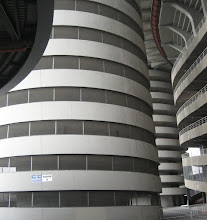Fassone has always been “optimistic” about talks with UEFA
about Milan’s Financial Fair Play status. As soon as the purchase of the club
was completed, he met with them to request a Voluntary Agreement. When that was
turned down, he met with them once again, providing even more documentation, about
achieving a Settlement Agreement. And he was very optimistic about UEFA
agreeing on a settlement based on FFP violations. However, the other day, they
turned down the settlement agreement and referred Milan for disciplinary
action. While their questions of “uncertainties” are difficult to argue, and
Milan has failed to complete the tasks recommended by the investigatory committee,
it’s still the only time I am aware of that a club has been referred because of
the mistakes of past ownership and then punished for things that haven’t
happened yet. It truly feels more like Financial Foul Play.
 |
| Unusual practices for a governing body |
The original investigation was opened based on the books for
the previous three seasons, all but about six weeks of which were run by
Berlusconi and Galliani. As a new owner of the club, Yonghong Li had a right to
ask for a voluntary FFP agreement, which he did. This would have meant that
both Milan and UEFA agree to a budget and financial plan to be FFP compliant
within a few years’ time. Seems reasonable, right? Don’t punish the new
ownership for the past ownership’s mistakes, but at the same time agree to a
plan for financial success. Helping a new owner plan for the future. That is what Financial Fair Play is all about –
reducing the amount of debt and keeping clubs solvent so they can be successful
financially.
This is where it gets tricky, though. That voluntary
agreement was rejected because UEFA didn’t like the idea that the Elliott Fund
could conceivably become a majority shareholder in the club. The debt to them
was high enough that should Yonghong Li default on the short-term, very high
interest loans, our club could come under the ownership of a financial
institution rather than an invested investor. Considering that the voluntary agreement
hinges on a financial plan going forward, I was surprised yet could also
understand the rejection of this plan by UEFA. Also because the financial plan
presented by Fassone hinged on a return to the Champions League within a year,
which was always unreasonable. Placing a majority of the financial fate of the
club on the hopes and dreams of results on the pitch certainly didn’t seem very
responsible to me. But the voluntary agreement was about looking at a plan, not trial for past crimes.
 |
| He's kept his financial agreements to date |
After those meetings and the rejection of the voluntary
agreement, Fassone met with them again and presented more documentation in
hopes of a settlement agreement. My understanding of this agreement is that it
is based on financial mistakes made, and both sides agree to an appropriate
settlement, often in the form of a fine but sometimes including a limitation of
players available for European competitions, etc. Whereas the voluntary agreement was more about looking forward, the settlement agreement is more punitive, looking back at the past. From all of the similar agreements
I have read about previously, the punishments were quite small for very large
infractions, and they were infractions incurred by the current managements.
That is where the Milan decision takes a major turn. Not
only was the rejection of our settlement agreement not based on the books of
the previous three seasons, as the original investigation was supposed to be
about, but it was rejected on “uncertainties,” or future potential infractions.
We are being punished for something we haven’t even done yet.
 |
| "Always cover your mouth when talking about UEFA or they'll punish you for things you are about to say" |
Technically, the club was purchased within the three year
timespan of the investigation, and the Elliott Fund debt incurred during that
timeframe. From the first meetings, Fassone was told to get that debt
refinanced without the takeover clauses by April, and he didn’t do that.
However, the refinancing piece was about this season, which shouldn’t be
considered under this investigation yet. Furthermore, their ruling that
includes “uncertainties” is based on a future event, which is October of 2018.
But we are going to be punished now based on something that hasn’t happened.
And as Fassone pointed out, Yonghong Li has met all of his financial
obligations since the purchase of the club, so it is harsh for them to punish
us now based on a prediction of failure which has no precedent.
Three of the most likely punishments for Milan would be
stripping us of our Europa League spot (which actually could be very beneficial
for our growth,) a hefty fine, or sanctioning our transfer market. Those
punishments are meant to be for teams who willfully ignored Financial Fair
Play, for owners who owned their clubs during the time periods being
investigated. And maybe I’m misinformed on this, but I’ve never heard of a club
being punished based on future infractions that may or may not be made. I mean
if they said we are going to punish Milan because of the previous three years,
it would be weird enough, considering the ownership change. But to punish us
for things that haven’t even happened yet just feels more like Financial Foul
Play.
This post inspired by the music of The
Beatles’ “Can’t Buy Me Love”
Financial Foul Play
 Reviewed by Elaine
on
Rating:
Reviewed by Elaine
on
Rating:
 Reviewed by Elaine
on
Rating:
Reviewed by Elaine
on
Rating:
